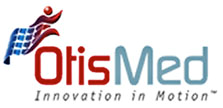DOJ Catch Of The Week -- OtisMed Corp.
 By the C|C Whistleblower Lawyer Team
By the C|C Whistleblower Lawyer Team
This week’s Department of Justice “catch of the week” goes to medical products manufacturer OtisMed Corp. On Monday, the company and its former CEO Charlie Chi admitted to intentionally distributing knee replacement surgery cutting guides (called the OtisKnee) after the Food and Drug Administration (FDA) had rejected their application for marketing clearance. OtisMed agreed to pay more than $80 million to resolve its related criminal and civil liability for distributing an adulterated medical device in violation of the Food, Drug, and Cosmetic Act (FDCA), and submitting fraudulent claims in violation of the False Claims Act. See DOJ Press Release.
According to the government, Chi was among the founders of OtisMed in August 2005 and conceived of the OtisKnee orthopedic cutting guide, its primary product. The OtisKnee was used by surgeons during knee replacement surgery. The surgical procedure requires a surgeon to remove the ends of the leg bones and to reshape the remaining bone to accommodate the implantation of an artificial knee prosthesis. OtisMed marketed the OtisKnee cutting guide as a tool to assist surgeons in making accurate bone cuts specific to individual patients’ anatomy based on magnetic resonance imaging (MRI) performed prior to surgery. However, none of OtisMed’s claims regarding the OtisKnee device were evaluated by the FDA before the company used them in advertisements and promotional material. Between May 2006 and September 2009, OtisMed sold more than 18,000 OtisKnee devices.
In October 2008, OtisMed submitted a pre-market notification to the FDA seeking clearance to market the OtisKnee. The company had not previously sought the FDA’s clearance or approval and had been falsely representing to physicians and other potential purchasers that the product was exempt from such pre-market requirements. In September 2009,
the FDA denied OtisMed’s submission, noting the company had failed to demonstrate the OtisKnee was as safe and effective as other legally marketed devices. The FDA warned OtisMed that distribution of the OtisKnee prior to approval would be an FDCA violation. The FDA also told OtisMed it viewed the product as a “significant risk device system,” presenting a potential for serious health and safety risks.
Nevertheless, and against the direction of the company’s board of directors, Chi directed OtisMed employees to organize a mass shipment of all OtisKnee devices that had been manufactured but had not yet been shipped. He further suggested ways for them to hide the shipments from FDA regulators. Both Chi and OtisMed admitted Chi ordered the distribution a week after the FDA denied OtisMed’s request for clearance.
In announcing the settlement, the government stressed the importance of medical device companies abiding by FDA rules to ensure the products they sell are safe and effective. “Americans must be able to trust that they are treated with medical devices that have been shown to be safe and effective,” said Deputy Assistant Attorney General Jonathan Olin for DOJ’s Civil Division. “The Department of Justice will not tolerate companies and individuals that cut corners when it comes to the public’s health.” U.S. Attorney Paul J. Fishman for the District of New Jersey echoed this concern. “Patients seeking medical care are vulnerable; they are often afraid, and in pain. They should be able to trust their doctors. And they should be entitled to trust that the devices their doctors are using are safe, effective, tested and approved. OtisMed and Charlie Chi betrayed that trust.”
OtisMed was a privately held company when OtisMed and Chi committed the criminal conduct, and was later acquired by medical device company Stryker Corp. in November 2009. Stryker cooperated with the government with regard to OtisMed’s pre-acquisition conduct. In addition to the criminal pleas and civil resolution, OtisMed also agreed to be excluded from participating in all federal health care programs for a period of 20 years and Stryker separately agreed to a series of compliance measures aimed at preventing future misconduct. The civil portion of the settlement resolves whistleblower claims filed by former Stryker executive Richard Adrian under the qui tam provisions of the False Claims Act. He will receive a whistleblower award of roughly $7 million.
Tagged in: Catch of the Week,